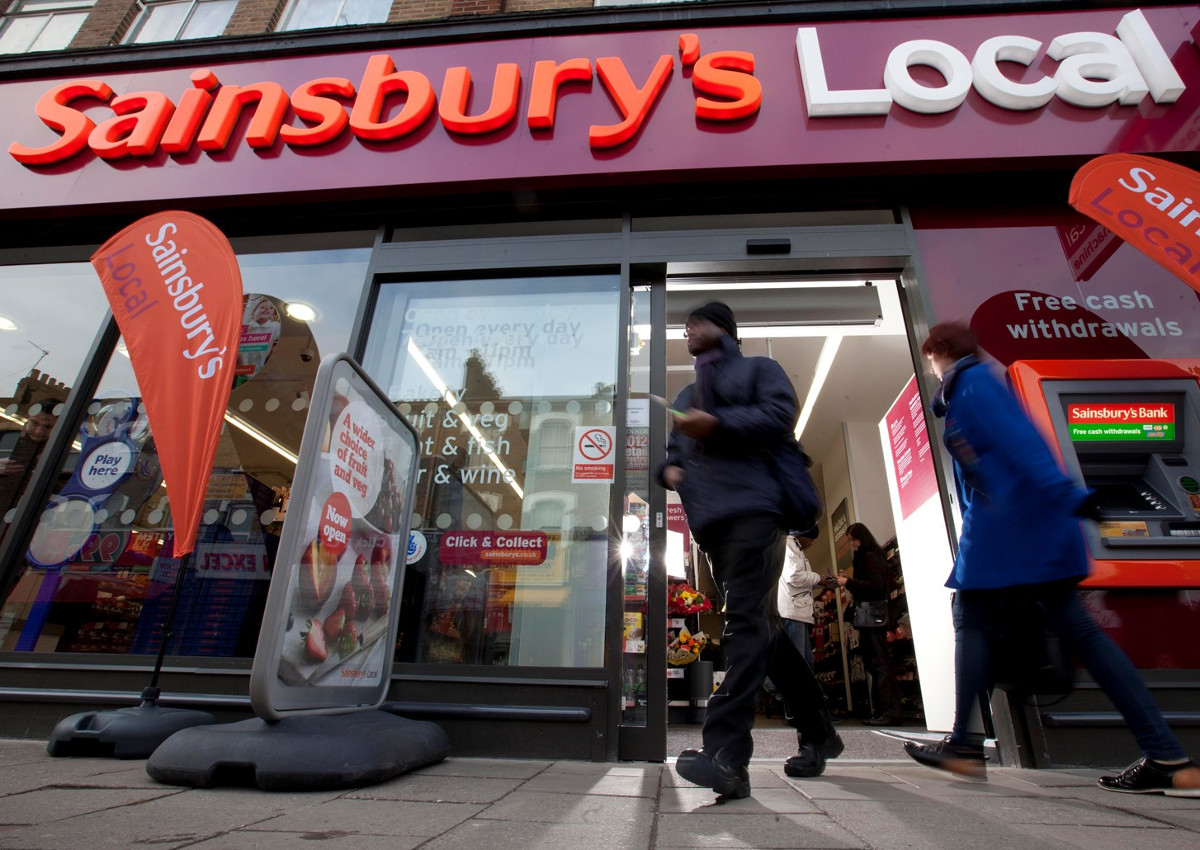
Sainsbury’s and Walmart’s Asda are in talks to create Britain’s biggest supermarket group, a combination which would surpass Tesco’s grocery market share and be worth up to 10 billion pounds (€11.34 billion). Sainsbury’s confirmed on Saturday that it and Walmart, the world’s largest retailer, were in advanced discussions regarding a combination of the Sainsbury’s and Asda businesses, the UK’s No. 2 and 3 UK grocers. It said they will make a further announcement at 0600 GMT on Monday. Britain’s big grocers, including No. 4 player Morrisons, have been losing share to German discounters Aldi and Lidl and must also deal with growing demand for internet grocery shopping and the march of Amazon. The Qatar Investment Authority, which has tried to buy Sainsbury’s in the past, is currently the supermarket group’s biggest shareholder with a 22 percent stake. The deal would probably dilute that holding. The deal would be the largest in the UK supermarket sector since Morrisons acquired the Safeway business in 2004.
Profit decline
Sainsbury’s has reported three straight years of profit decline, and is forecast to report a fourth on Wednesday. Asda has seen two years of falls. Asda, which Walmart bought in 1999 for 6.7 billion pounds, is one of the retail giant’s largest and worst-performing international businesses. Analysts reckon Asda was hurt the most by the rise of the discounters, which eroded its traditional price advantage. Asda doesn’t have discount and it doesn’t have convenience. This (deal) provides a potential solution for Walmart to deliver a more profitable Asda in the long run, said Shore Capital analyst Clive Black. In recent years Walmart has shifted its traditional approach from building overseas businesses itself to partnering with local players, for example in China. Sainsbury’s and the similarly-sized Asda would overtake Tesco with a combined market share of 31.4 percent versus Tesco’s 27.6 percent, according to the latest data from market researcher Kantar Worldpanel. Asda stores would continue to trade under their own brand, separate from the more upmarket Sainsbury’s.
The fight against Amazon
J Sainsbury Plc Chief Executive Officer Mike Coupe is fighting back against Amazon.com Inc. and discount grocers with this big takeover bid – a multibillion-deal with Walmart Inc. that would fundamentally transform Britain’s supermarket business. For Coupe, who took over four years ago as CEO, the step would be the boldest – and riskiest – yet to transform the UK retail scene amid incursions from German discounters Lidl and Aldi and the rise of e-commerce. The deal would build on Sainsbury’s 2016 acquisition of general-merchandise retailer Argos, which has begun to bolster the grocer’s profits as fierce price competition and the Brexit-induced weakness of the pound squeeze margins in the food business. There’s undoubtedly some scale benefits in buying, said Bryan Roberts, an analyst at TCC Global. Still, a combined entity doesn’t get rid of the problems both companies face, Roberts said. They still won’t be cheaper than Lidl or Aldi. Coupe, who previously worked at Asda and other UK retailers, has been pushing to reshape the London-based company as it wrestles with the online threat that has contributed to the demise of department-store chain BHS, electronics retailer Maplin and the UK arm of Toys “R” Us. While Coupe has defied some analysts’ expectations by successfully integrating Argos and wringing out cost savings, weaving together Asda with Sainsbury’s could present bigger challenges. The Walmart division is favored by shoppers on tight budgets, while Sainsbury appeals to a more affluent crowd. Sainsbury’s has expanded aggressively into convenience stores and is focused on the south of England around London, while Asda has more large supermarkets spread across the country’s north. That geographical distribution limits store overlap.
Scaling back
For Walmart the possible deal marks a further retrenchment of its international footprint as the company focuses on competing with Amazon at home. Walmart acquired Asda at a time when the US company was expanding aggressively overseas. Since then it has backed out of international markets ranging from Germany to South Korea. After the transaction, the US retailer would retain a significant stake in Sainsbury’s, according to people familiar with the situation. That would give the combined company greater clout with suppliers. While Tesco and other grocers have shown signs of recovering lost pricing power in recent months, Asda has suffered from the incursion of Lidl and Aldi. Long known as Britain’s lowest-priced mainstream grocer, the Walmart unit has lost a major selling point to the duo of discounters.
